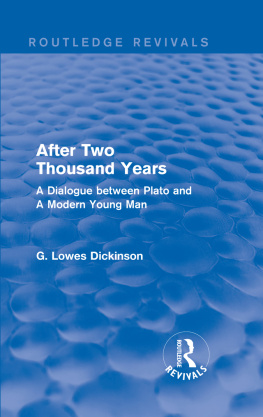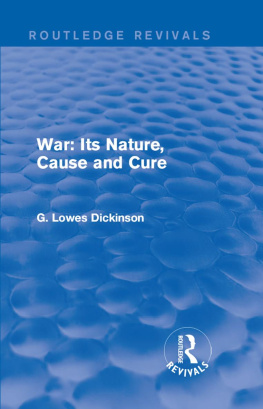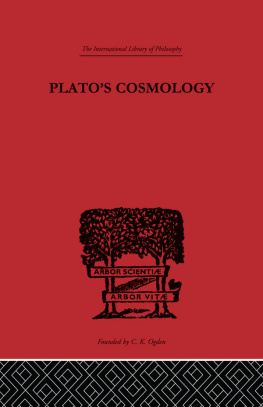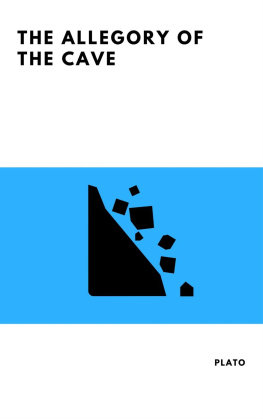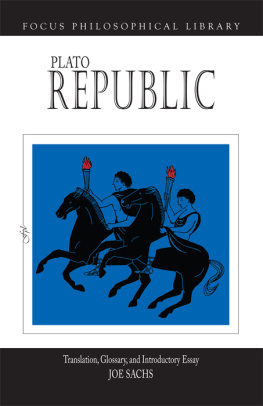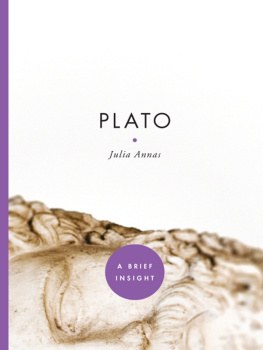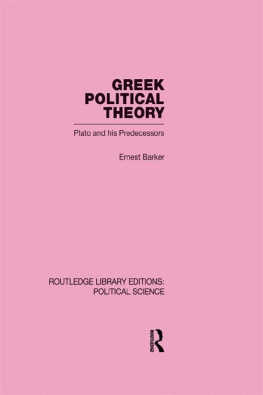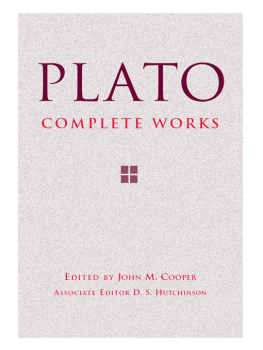Routledge Revivals
After Two Thousand Years
First published in 1930, this book presents an imagined account of conversation between Plato and 'A Modern Young Man'. In the first part, political and social institutions are considered and property, forms of government, socialism, the control of population, war and education, are discussed. The second part examines the idea of real Goods including the concepts of truth, art and love. In this work, the author sees Plato reaffirming his belief that real Goods come from some higher world, which it is the destiny of the spirits to pursue.
After Two Thousand Years
A Dialogue between Plato and A Modern Young Man
G. Lowes Dickinson
First published in 1930
Second Impression 1931
by George Allen & Unwin LTD
This edition first published in 2016 by Routledge
2 Park Square, Milton Park, Abingdon, Oxon, OX14 4RN
and by Routledge
711 Third Avenue, New York, NY 10017
Routledge is an imprint of the Taylor & Francis Group, an informa business
1937 George Allen & Unwin LTD
The right of G. Lowes Dickinson to be identified as author of this work has been asserted by him in accordance with sections 77 and 78 of the Copyright, Designs and Patents Act 1988.
All rights reserved. No part of this book may be reprinted or reproduced or utilised in any form or by any electronic, mechanical, or other means, now known or hereafter invented, including photocopying and recording, or in any information storage or retrieval system, without permission in writing from the publishers.
Publishers Note
The publisher has gone to great lengths to ensure the quality of this reprint but points out that some imperfections in the original copies may be apparent.
Disclaimer
The publisher has made every effort to trace copyright holders and welcomes correspondence from those they have been unable to contact.
ISBN 13: 978-1-138-95821-0 (hbk)
ISBN 13: 978-1-315-66114-8 (ebk)
AFTER TWO THOUSAND YEARS
A DIALOGUE BETWEEN PLATO AND A MODERN YOUNG MAN
BY
G. LOWES DICKINSON
FIRST PUBLISHED IN 1930
SECOND IMPRESSION 1931
All rights reserved
PRINTED IN GREAT BRITAIN BY
UNWIN BROTHERS LTD., WOKING
Prefatory Note
THIS dialogue is continuous, and I have thought it better not to attempt to divide it into chapters. The contents are indicated by the side notes. But it may assist readers if I indicate briefly the general plan and principal divisions. The dialogue falls into two main parts, the first dealing with political and social institutions, which are regarded as means (pp. 11 to 117); the second with what are regarded as ends (pp. 117 to 213).
The principal divisions of Part I are as follows:
- Property (pp. 11 to 32).
- Forms of Government (pp. 33 to 48).
- Socialism (pp. 48 to 55).
- The control of Population (pp. 55 to 83).
- War (pp. 84 to 106).
- Education (pp. 106 to 117).
Passing to Part II, the point is first raised whether Plato's Republic did not in fact so subordinate the individual to the community that nobody was in fact pursuing any real Good, not even the governing class, since they were compelled to descend and govern (pp. 118 to 124). Further, the question is discussed whether it might not be better that the mass of the citizens should attain what Good they could, rather than a few attain higher Goods at the cost of the majority (pp. 124 to 127). This, however, is dismissed as an unreal alternative; and the argument goes on to examine the character of real Goods in themselves as distinguished from means to other Goods.
The Goods thus discussed are:
Truth (pp. 129 to 140).
Art (pp. 141 to 184).
Love (pp. 184 to 198).
In conclusion Plato reaffirms his belief that real Goods glimmer down from some higher world, which it is the destiny of spirits to pursue (pp. 198 to end).
After Two Thousand Years
The Speakers are Plato and Philalethes
PH. Plato! Is it really you?
Introduction
PL. That was my name, I think, once, long ago. What place is this?
PH. The Elysian Fields.
PL. Ah! I begin to remember. Why did you call me?
PH. I did not call. I was thinking of you and you came.
PL. Your thought then drew me.
PH. From what place?
PL. No place and no time.
PH. Have I done you wrong to draw you back?
PL. The greatest wrong. Yet when I see you, I cannot but forgive it. By what name am I to call you?
PH. Call me Philalethes, for I seek the truth.
PL. It is for that that I love you.
PH. They do not love me for it here. I find none who feel my need.
PL. Here they do not seek but enjoy, and what they enjoy is beauty.
PH. So they tell me. But I want truth.
PL. What kind of truth?
PH. Every kind. But firstPlato, can you tell me?
PL. What?
PH. Is it possible to die, and yet not to be dead?
PH. Say rather, to live, yet not to be alive.
PH. Whichever it be, I think it is my case. For I cannot escape from the memory of Earth.
PL. You have not then drunk of Lethe.
PH. But why is that? What does it mean?
PL. That you are but a visitor here, not a native, and if you will you may return. The choice is yours.
PH. That then is why my mind is full of the matter of Earth. Yet it is not confused and stunned, as it used to be. I see calmly, as from the shore, the sea on which once I was tossed; and I have only one wish, to chart, if I but could, a course for the vessel that bears the freight of mankind. You, of all great souls, I knew could help me. And that is what brought you here.
PL. Whether I can help I do not know. Perhaps I might once have done so, had you been with me in Greece. But now I do not even know what is the state of the world.
PH. It has changed much, though in much it is the same.
PL. Tell me about it.
The Scale of the Modern World
PH. The theme is vast, far vaster than you knew. You saw indeed, as from above, our huge globe, turning through space and bright with the colours of the rainbow. But you had not travelled it, as we have.
PL. It was men, rather than the places in which they lived, that interested me. Have you found men wherever you travelled?
PH. Yes, wherever men could live.
PL. Civilised or barbarian?
PH. They live, many of them, in cities, but not in such cities as you knew. Ours are many times as populous.
PL. Yet even ours, I seem to remember, were too large for order.
PH. With us the whole scale is greater. Our cities may contain millions, and our empires hundreds of millions.
PL. But how do you order numbers so immense and spaces so vast?
PH. We have contracted space and time. We travel without horses faster than you could ride, and our messages girdle the world in less time than Pheidippides took to run from Athens to Sparta.
PL. And have these wonders also improved the order of your societies?
PH. No! It is that that is disquieting. The pigmies have grown into giants, but their form and constitution is the same.
PL. The soul, I conclude, has not improved in quality though it inhabits a vaster body.
PH. It would seem so. For we have, in our states, disorders of the same kind that you had in your cities. And because it was you that best diagnosed those, it was to you that my thoughts turned when I found myself here.

